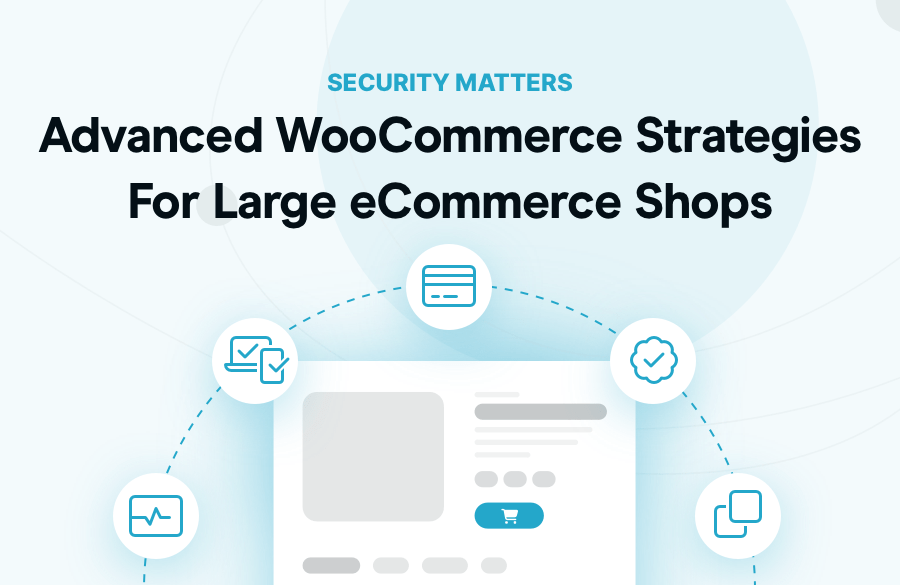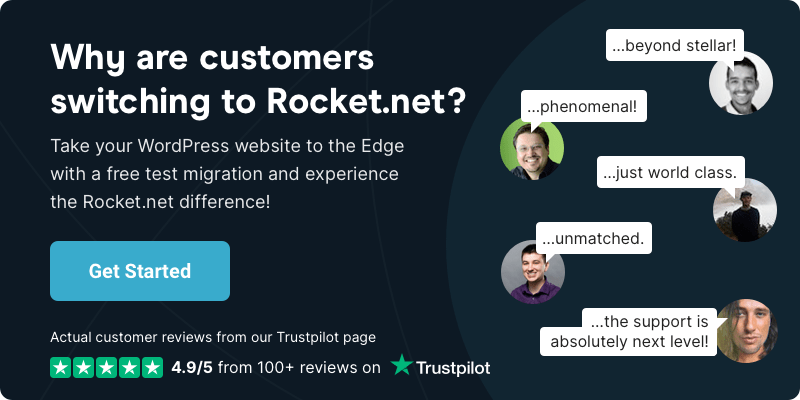
Hosting Checklist: Searching For a New Hosting Provider?
- •
- 6 min read

Enterprise WooCommerce security requires PCI DSS compliance through secure payment gateways, mandatory two-factor authentication for admin access, and systematic security auditing. Your job is to minimize threats while maintaining performance.
Remember: Security isn’t just about preventing breaches — it’s about responding smartly when something goes wrong.
Security isn’t complicated. “Regularly updating WordPress, WooCommerce, and all installed plugins is crucial to maintaining a secure online store.”
WooCommerce.com
When you run a large WooCommerce store, your security priorities shift. You’re no longer just installing a few plugins and calling it a day — you’re thinking about data protection, PCI compliance, customer trust, and performance at scale. You’re a business partner, not a Webmaster. Here’s how to stay one step ahead.
PCI DSS (Payment Card Industry Data Security Standard) compliance is mandatory for any online store that processes credit card payments. While WooCommerce itself is not PCI certified (because the Payment Gateway itself is PCI-compliant), you can meet PCI standards by aligning your entire stack — hosting, payment gateways, SSL, and internal practices.
Rocket.net Tip: Rocket.net’s platform is PCI-compliant out of the box. Since your WooCommerce sites run behind a hardened stack with Cloudflare Enterprise WAF, much of the heavy lifting is already handled — from secure HTTPS to edge-level firewall protection. Find out more about Rocket.net’s WooCommerce hosting.
2FA isn’t optional for large WooCommerce Shops — it’s essential.
Even a complex password can be compromised. Add two-factor authentication (2FA) for all administrator accounts, including any contractors, customer service reps, or marketing team members who log in to the backend.
Pro Tip: Use tools like Wordfence Login Security, Authy, or Google Authenticator to enforce 2FA for all users with elevated roles.
Rocket.net Tip: Since Rocket.net’s control panel supports team-based access and secure login protocols, you can ensure client accounts or developers only have the access they need — no more, no less.
“All users on Rocket.net can now benefit from Two-Factor Authentication (2FA, sometimes known as Multi-Factor Authentication, or MFA). Account owners can even force 2FA on sub accounts.”
Rocket.net – Introducing: Enterprise-Grade Identity and Access Management for Rocket.net Customers
Security isn’t a one-time event. It’s a habit. And if you’re operating at scale – think thousands of customers, hundreds of SKUs — you need a clear audit process. Pick a day of the week and stick to it. Security Tuesday FTW.
Rocket.net Tip: Backups are automatic, daily, and stored offsite. You can restore your entire site in one click, which makes your “disaster recovery” plan as simple as clicking a button.
Unfortunately, large WooCommerce shops are targets for bad actors. Bots try brute-force logins. Scripts scan for vulnerable plugins. Your best defense? A layered one.
Rocket.net Insight: ShopShield is the ultimate WooCommerce tool. It combines performance monitoring with security intelligence, identifying threats before they hit your backend. It’s like having a security analyst and a performance engineer on autopilot.
It’s not going to happen until it does, right? Even with the strongest defenses, no store is 100% immune.
If the unexpected happens and your WooCommerce store experiences a security breach, your action plan should kick in without calling a team meeting. Here’s how to respond with confidence:
Immediately take the site offline or switch to maintenance mode. This limits further damage and stops additional data loss or malware injection.
Pro tip from Rocket.net:
If you’re hosting with us, contact support immediately. Our 24/7 security team can help you quarantine your environment while preserving access for forensics.
Alert key internal team members and any third-party developers or contractors. Transparency ensures a coordinated response and builds long-term trust.
Force password resets for all users, including admins, vendors, and customers. Make sure new passwords follow best practices (complex, unique, and stored securely).
Review server logs, admin activity, and recent plugin/theme changes. Look for unusual activity, especially privilege escalations or unauthorized file edits.
Tool Tip: Use a plugin like WP Activity Log or Query Monitor for historical insights. If you’re on Rocket.net, reach out for logs and technical details – we’re ready to assist.
Scan for malware using tools like Wordfence, Sucuri, or MalCare — or let Rocket.net handle it. We provide malware removal and post-cleanup guidance.
If customer data has been compromised (e.g., name, email, billing info), notify users promptly. Follow GDPR, CCPA, or other relevant regulations to avoid legal repercussions. Security isn’t just about preventing breaches — it’s about transparent communication when something goes wrong.
Update all plugins, themes, and WordPress core. If any were compromised, reinstall them from trusted sources. Remove unused code that could act as a backdoor.
Your hosting partner plays a huge role in your store’s security posture. If they can’t respond quickly or lack essential security protocols, it’s time to switch.With Rocket.net: You’re backed by Cloudflare Enterprise-level WAF, malware protection with Imunify360, and real-time support from WordPress security pros.
PCI Compliance: Use secure gateways, SSL, and compliant hosting (like Rocket.net)
Two-Factor Authentication: Enforce 2FA for all admins and elevated roles.
Regular Audits: Weekly reviews of users, plugins, logs, and file changes.
Monitoring: Real-time traffic logs, bot defense, and instant alerts.
Backups: Automated, daily, off-site backups for quick restores.
“If your web hosting provider doesn’t prioritize security, their vulnerabilities can put your store at risk. That’s why we recommend store owners choose a reputable hosting provider that has been in the business for a while and has a proven track record of offering secure hosting.”
Wordfence.com
Security should never come at the expense of speed, and with Rocket.net, it doesn’t have to. Our platform combines edge-level security with best-in-class performance, meaning your large WooCommerce shop stays fast and secure without added complexity.
Want help locking down your WooCommerce store and speeding it up? Talk to us – we’ll handle the hard stuff so you can focus on conversions, not configurations.
